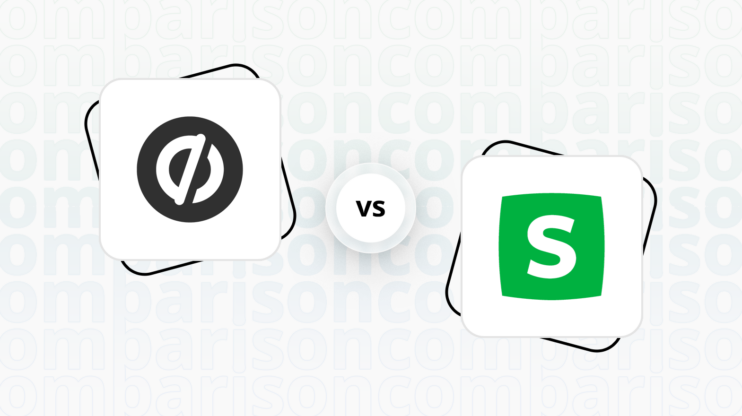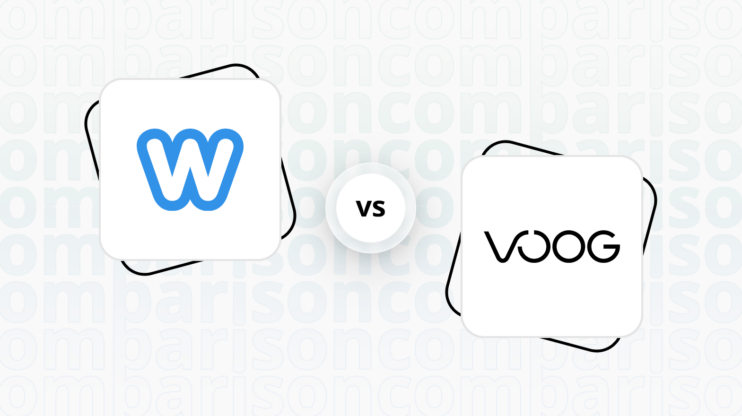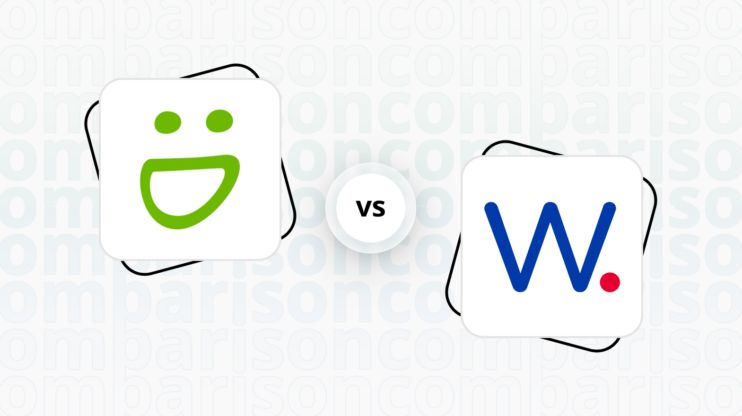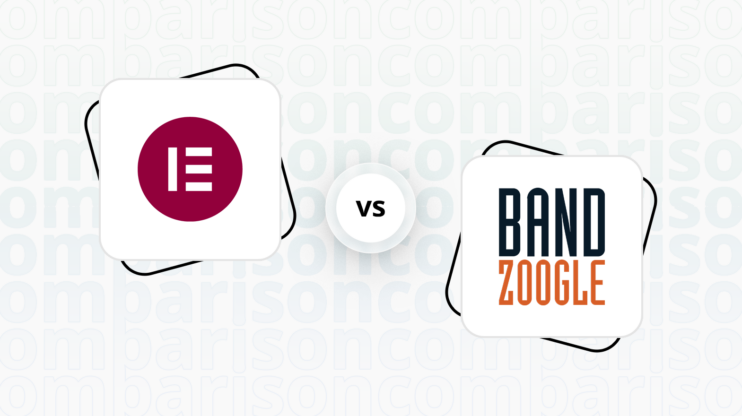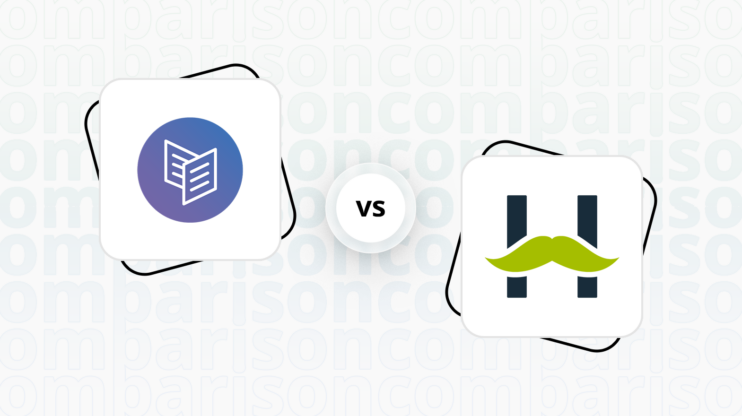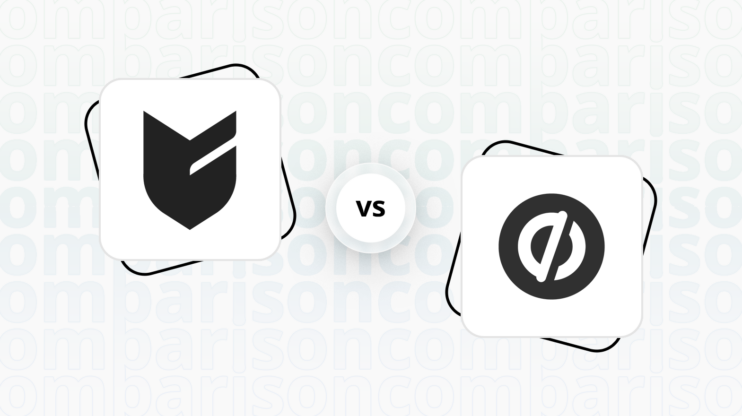Final verdict
Format and Webnode both offer unique advantages, but they cater to different user needs.
-
Format (Overall Grade: 5.8/10)
is tailored for creative professionals such as photographers, artists, and designers. It excels in providing visually appealing, customizable templates and an intuitive drag-and-drop interface. When comparing Format vs Webnode, Format stands out for its ease of use and specialized features like client proofing and integrated online stores, making it ideal for showcasing portfolios and connecting with clients. -
Webnode (Overall Grade: 6.5/10)
, on the other hand, is a versatile website builder suitable for beginners and small businesses. It offers a user-friendly drag-and-drop interface, a variety of customizable templates, and solid ecommerce functionalities. Considering Format vs Webnode, Webnode is a better choice for users looking for a quick and easy way to create a simple website with more flexibility in user management and a broader range of plugins and integrations.

|

|
|
|---|---|---|
|
Design functionalities & templates |
7.0 |
7.1 |
|
Ease of use |
8.3 |
8.0 |
|
Ecommerce |
5.2 |
6.3 |
|
Website Editors |
7.5 |
7.3 |
|
Product testing options |
8.3 |
5.3 |
|
Price |
7.9 |
7.7 |
|
Hosting quality |
5.0 |
6.3 |
|
Website speed optimization |
5.0 |
6.1 |
|
Plugins and integrations |
4.9 |
6.8 |
|
Marketing features |
5.3 |
5.5 |
|
Customer support |
7.0 |
5.3 |
|
Security |
7.4 |
7.7 |
|
AI capabilities |
0.0 |
5.3 |
|
User Management |
2.8 |
6.9 |
Best for ecommerce
 5.2
5.2
 6.3
6.3
Verdict
: Webnode offers a more comprehensive ecommerce solution compared to Format, making it a better choice for those looking to build and manage an online store.
-
Format
: Format is tailored for creative professionals, offering a range of customizable templates to showcase portfolios. While it includes basic ecommerce features like inventory management and multiple currency options, it lacks ecommerce-specific templates and advanced functionalities. This makes it more suitable for creatives who want to sell their work online but do not require extensive ecommerce capabilities. -
Webnode
: Webnode provides a more robust ecommerce platform with features like shipping options, payment gateway integrations, and order management. It also offers ecommerce-specific templates, making it easier to set up an online store. With a higher score in ecommerce functionalities, Webnode is better suited for users looking to create a fully functional online store quickly and easily.
Best for informational & business websites
 7.2
7.2
 7.2
7.2
Verdict
: Both Format and Webnode score equally at 7.2 for informational and business websites, but they cater to slightly different audiences. Format is ideal for creative professionals, while Webnode is more suited for beginners looking for a straightforward website builder.
-
Format
: Format is tailored for creative professionals such as photographers, artists, and designers. It offers nearly 100 customizable templates that are visually appealing and mobile-friendly, making it an excellent choice for showcasing portfolios. The platform’s drag-and-drop interface is intuitive, allowing users to create and manage their online presence without any coding knowledge. With additional features like an integrated online store, client proofing, and blogging tools, Format provides a comprehensive solution for creatives to share their work and connect with potential clients. -
Webnode
: Webnode is a versatile website builder that caters to beginners who want to create a simple website quickly and easily. Its drag-and-drop interface allows users to move elements around the page to create their desired layout without any coding skills. Webnode offers a variety of customizable and responsive templates designed for different purposes, from business and portfolios to restaurants and travel. While its free plans have limitations, the paid plans provide more storage, custom domain names, and the ability to remove Webnode ads, making it a good option for those looking to upgrade their website as their needs grow.
Detailed comparison
Design functionalities & templates
Design FunctionalitiesRepresents how well each platform allows for creative design and customization of websites.Score Components:
- Template Variety (30%): Range and quality of design templates.
- Customization (30%): Flexibility and options for design alterations.
- User Interface (20%): Ease and intuitiveness of the design process.
- Responsiveness (10%): Adaptability to different devices and screen sizes.
- Innovation (10%): Unique design features and tools.
 7.0
7.0
 7.1
7.1
🏆
Winner: Webnode.
Although both website builders offer a range of design functionalities and templates, Webnode slightly edges out Format with a score of 7.1 compared to Format’s 7.0.
Format is a website builder specifically designed for creatives, offering nearly 100 customizable templates tailored for various artistic disciplines. It emphasizes high-quality imagery and mobile-friendly designs, ensuring portfolios look professional on any device.
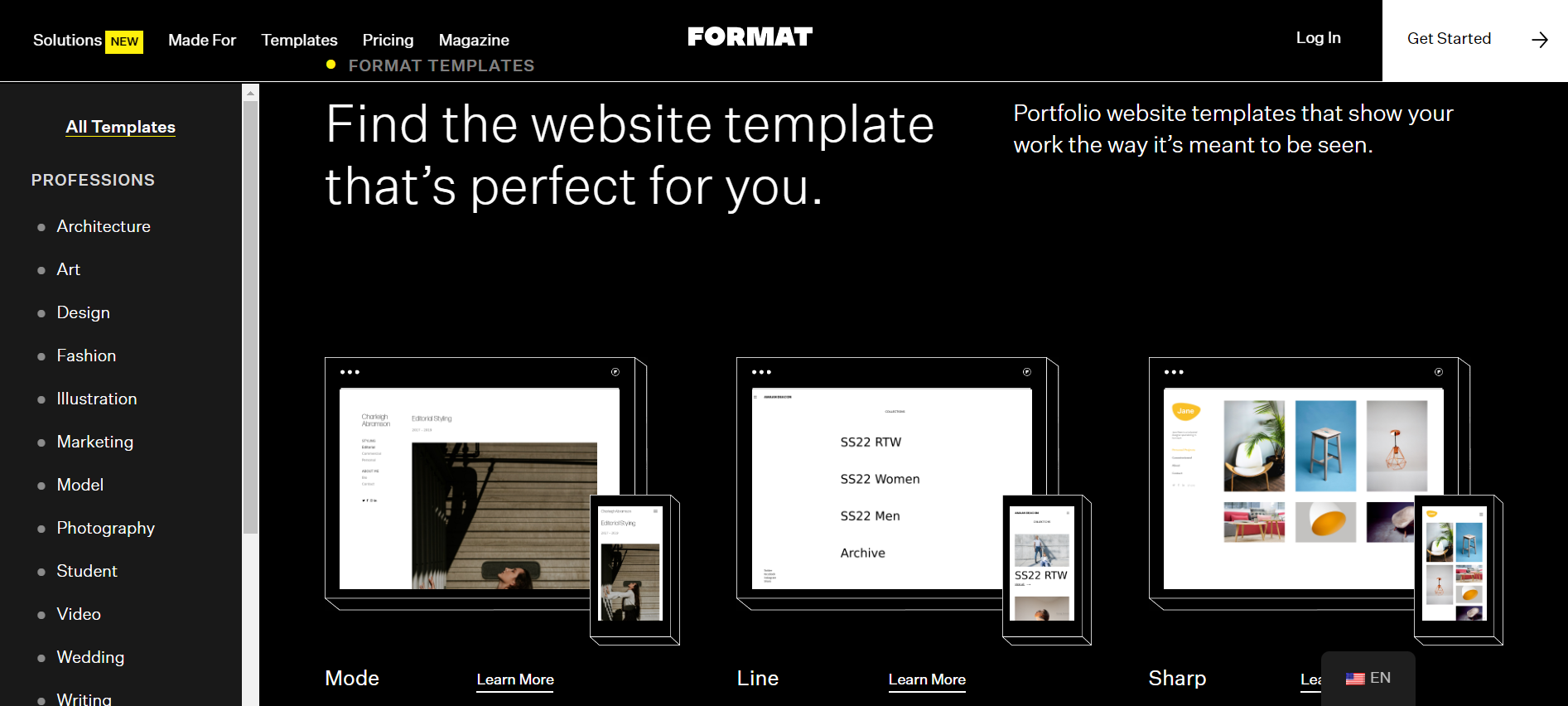
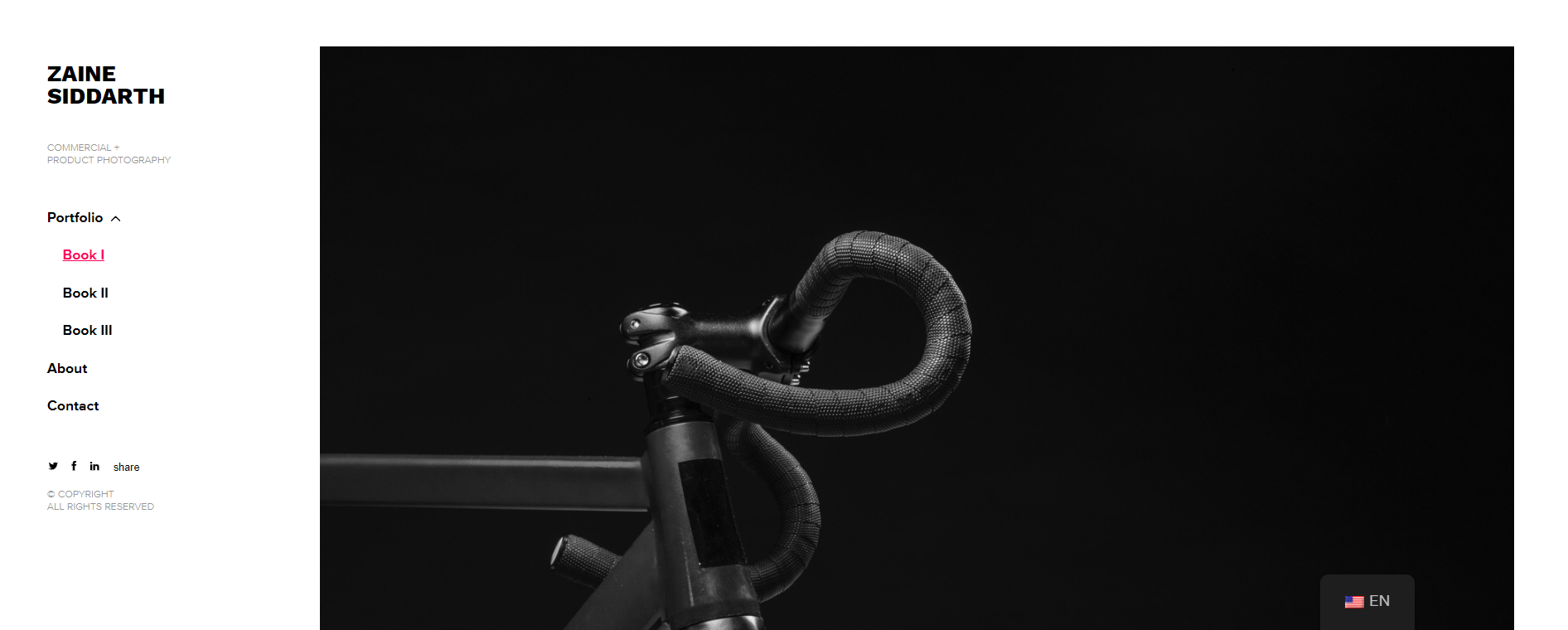
On the other hand, Webnode offers a variety of website templates designed for different purposes, from business and portfolios to restaurants and travel. These templates are customizable and responsive, ensuring they display well on any device.
Get a head start on website creation with AI
Create a custom website tailored to your business needs 10X faster with 10Web AI Website Builder!
Ease of use
Ease of useReflects the platform’s overall user-friendliness.Score
Components:
- Learning curve (40%): Quickness and ease of getting started.
- Interface design (30%): Simplicity and intuitiveness of layout.
- User guidance (20%): Quality of tutorials and support.
- Flexibility (10%): Adaptability to various user skills.
 8.3
8.3
 8.0
8.0
🏆 Winner: Format
. Scoring 8.3, Format edges out Webnode, which scored 8.0. Format’s intuitive drag-and-drop interface and user-friendly platform tailored for creatives make it a slightly more accessible option for users without extensive technical skills.
Learning Resources
🏆 Winner: Webnode
. Both platforms offer solid learning resources, but Webnode goes a step further with its variety of resources, including official documentation, video tutorials, knowledge bases, and community forums, providing clear and helpful guidance to users of all skill levels.
For ecommerce
EcommerceMeasures the platform’s effectiveness in supporting online business activities.Score Components:
- Ecommerce themes and templates (20%): Variety and design of templates.
- Product management (25%): Ease of managing and organizing products.
- Payment options (25%): Variety and convenience of payment methods.
- Ecommerce features (20%): Features for managing an ecommerce store.
- Integration (10%): Compatibility with external e-commerce tools and services.
 5.2
5.2
 6.3
6.3
When it comes to ecommerce, both Format and Webnode offer basic functionalities. However, Webnode slightly outperforms Format with a score of 6.3 compared to Format’s 5.2.

|

|
|
|---|---|---|
|
Ecommerce themes and templates |
4.0 |
6.5 |
|
Product page customization |
5.5 |
7.0 |
|
Payment processing and commissions |
4.5 |
6.8 |
|
POS capabilities |
0.0 |
4.0 |
|
Payment gateways |
6.5 |
7.0 |
|
Product numbers |
5.0 |
5.5 |
|
Additional ecommerce features |
3.5 |
6.0 |
Format ecommerce features:
- Inventory management and tracking
- Discounts
- Multiple currency options
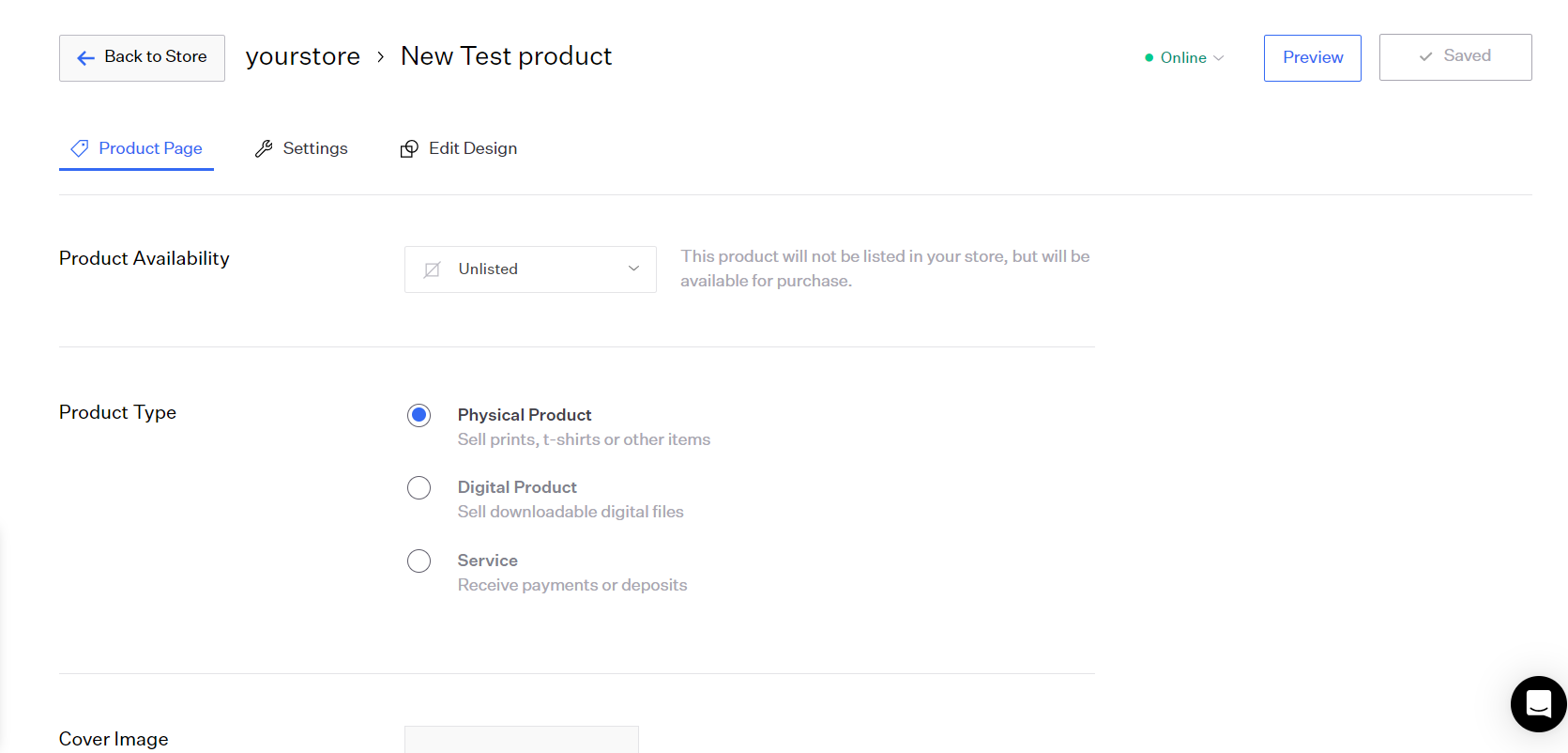
Webnode ecommerce features:
- Shipping options
- Payment gateway integrations
- Order management
- Coupons and discounts
Ecommerce themes & templates
Format does not offer ecommerce-specific templates, which may limit its appeal for those looking to build an online store. On the other hand, Webnode offers ecommerce-specific templates designed for creating online stores. These templates come with features such as product showcasing, shopping cart functionality, support for various payment gateways, and customization options. However, users should be mindful of potential limitations such as customization restrictions, feature limitations based on plan tiers, transaction fees, and integration limitations when choosing a template and plan for their ecommerce website on Webnode.
Product page customization
Format offers limited specific details on product page customization directly, but its e-commerce features suggest a focus on showcasing products through high-quality imagery and detailed descriptions. You can manage product specifics like shipping, availability, and pricing, with customization likely extending to layout and presentation styles to highlight products effectively. In contrast, Webnode provides users with extensive customization options for product pages, allowing for the creation of visually appealing and informative displays. Through customizable content blocks, product images and galleries, and tailored product descriptions, users can effectively showcase their products.
Payment processing
The Format website builder offers integration with major payment gateways, including Paypal and Stripe. It charges a 15% commission on the Pro plan and 5% on the Pro Plus plan. However, the platform does not have built-in POS (Point of Sale) capabilities. On the other hand, Webnode supports various payment gateways, including popular options like PayPal and Stripe, for online transactions. While Webnode itself doesn’t charge commissions on transactions, payment gateways may have their own fee structures. Webnode primarily focuses on facilitating online transactions and doesn’t provide native POS capabilities, although integration with third-party POS solutions may be possible.
Website Editors
Website EditorsEvaluates the platforms’ website building and editing capabilities.Score Components:
- Customization tools (40%): Range and power of editing features.
- Editor usability (30%): User experience within the editor.
- Design flexibility (20%): Freedom in layout and design changes.
- Update and maintenance ease (10%): Simplicity of updating and maintaining the site.
 7.5
7.5
 7.3
7.3
🏆
Winner: Format
. Format, with a score of 7.5, offers a variety of features for creating online portfolios. It provides nearly 100 professionally designed templates and thousands of design variations without requiring any coding. Users can express creativity with custom pages, incorporating unique gallery layouts, colors, text formatting, and custom code embeds. The templates and pages are fully responsive, ensuring a mobile-first experience. Format also supports direct video hosting, high-quality image rendering, and easy template switching to give sites a new look. Additionally, it includes studio management tools, e-commerce capabilities, and SEO tools.
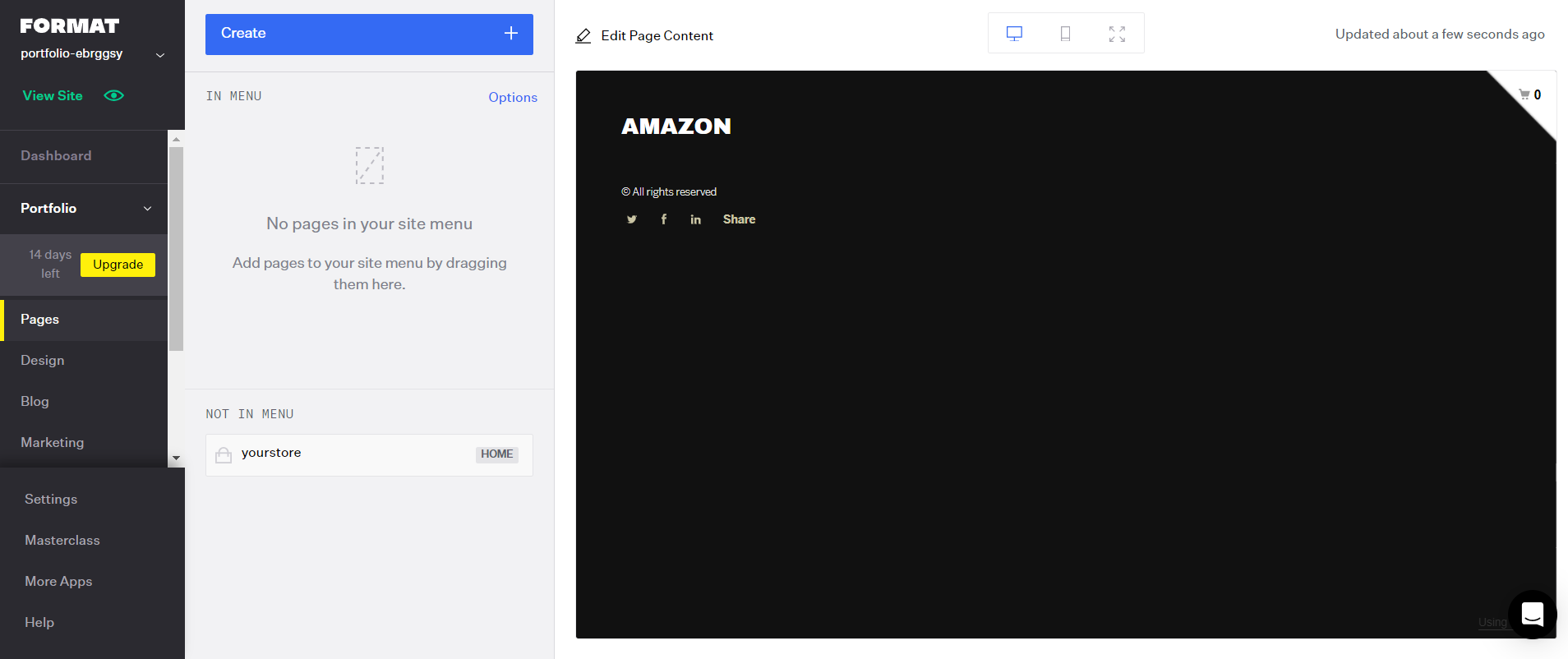
Webnode’s editor, scoring 7.3, features a user-friendly drag-and-drop interface with customizable templates, enabling users to easily create professional-looking websites without coding skills. The editor offers responsive design capabilities and multilingual support, catering to diverse audiences across different devices and languages. Built-in features such as SEO tools, e-commerce functionality, and analytics integration empower users to optimize their websites for search engines, sell products online, and track performance metrics effectively.
Mobile editor/app
 4.0
4.0
 5.5
5.5

🏆
Winner: Webnode
. Both Format and Webnode do not offer a dedicated mobile app for editing. However, they allow users to edit their websites using a mobile browser. The mobile browser version of the editor comes with certain limitations, making it less convenient than a dedicated mobile app.
Format’s mobile browser version is the same as the desktop version, which can be difficult to use on a smartphone. On the other hand, Webnode’s mobile browser version of the editor, while also having limitations, is slightly more user-friendly.
Therefore, Webnode wins this category due to its slightly better mobile editing experience. However, both builders could improve their mobile editing capabilities by offering a dedicated mobile app.
Product testing options
Product Testing OptionsAssesses the options for trying out platform features before commitment.Score Components:
- Trial quality (40%): Extent and usefulness of the trial or free version.
- Feature accessibility (30%): How many features are available to test.
- Trial duration (20%): Length of the trial period.
- Ease of transition (10%): Smoothness of moving from trial to paid plans.
 8.3
8.3
 5.3
5.3
Overall Result
:
Format wins
. Format scores 8.3 in product testing options, while Webnode scores 5.3. Format offers a 14-day free trial during which users can test all premium features. It also provides a 30-day money-back guarantee. On the other hand, Webnode offers a free plan with limited features and a 15-day money-back guarantee, but does not provide a trial version.

|

|
|
|---|---|---|
|
Free Plan |
No |
Yes |
|
Trial Duration |
14 days | No |
|
Testing Premium Features |
Yes, during free trial |
Limited, with free plan |
|
Money-Back Guarantee |
30 days |
15 days |
Price
PriceLooks at the cost-effectiveness and value for money of each platform.Score Components:
- Plan value (40%): What each pricing tier offers.
- Transparency and clarity (30%): Clearness of pricing structures.
- Flexibility of plans (20%): Range of options to suit different budgets.
- Hidden costs (10%): Additional expenses not included in the plan.
 7.9
7.9
 7.7
7.7
Format and Webnode have similar price scores, with Format slightly ahead.
Format is specifically designed for creative professionals and offers a range of customizable templates. Webnode, on the other hand, is a good option for beginners who want to create a simple website quickly and easily. Both builders offer discounts for annual billing, with Format offering a 30-60% discount depending on the plan, and Webnode offering a 14-25% discount depending on the plan. Neither builder offers an enterprise plan.

|

|
|
|---|---|---|
|
$0-$10 |
No offering at this amount. |
LIMITED ($5.50/month): Basic plan, 200 MB storage, attach domain, website statistics, up to 5 form fields, last 30 days backup. This plan allows to manage 1 website with unlimited number of pages. Value for Price: 3.0 |
|
$10-$15 |
Basic ($12.00/month): Offers core services like mobile-optimized site, up to 10 web pages, and up to 70 high-resolution images. 3 client galleries, up to 2GB file transfers. No video uploads or custom code editor. Value for Price: 5.0 |
MINI ($10.00/month): All essentials for a simple website, 1 GB storage, 3 GB bandwidth, website statistics, 1 email account. This plan allows to manage 1 website with unlimited number of pages. Value for Price: 4.5 |
|
$15-$20 |
No offering at this amount. |
STANDARD ($16.90/month): For starting an online store, 3 GB storage, 10 GB bandwidth, 20 email accounts, basic store features. This plan allows to manage 1 website with unlimited number of pages. Value for Price: 6.0 |
|
$20-$30 |
Pro ($24.00/month): Includes all from Basic, plus unlimited web pages, 1500 high-resolution images,15 mins video hosting, 100GB cloud storage, a free custom domain, Online Store with up to 15 products, 50 client galleries and up to 5GB file transfers. Value for Price: 7.5 |
PROFI ($26.50/month): Professional websites, 7 GB storage, unlimited bandwidth, 100 email accounts, full online store capabilities. This plan allows to manage 1 website with unlimited number of pages. Value for Price: 7.5 |
|
$30+ |
Pro Plus ($36.00/month): Adds on Pro features with priority support, unlimited pages and high-res images, 120 mins video hosting, and 1TB cloud storage. Online Store with up to 1000 products, 250 client galleries and 10GB file transfers. Value for Price: 8.5 |
BUSINESS ($34.90/month): Comprehensive e-commerce, 15 GB storage, unlimited bandwidth, 1000 email accounts, advanced online store features. This plan allows to manage 1 website with unlimited number of pages. Value for Price: 8.5 |
location. As a result in rare cases the prices displayed here can differ from the ones you see on their
websites.
Hosting quality
Hosting
qualityExamines the reliability and performance of the hosting solutions.Score Components:
- Uptime (40%): Consistency and reliability of website availability.
- Speed (30%): Loading times and performance.
- Bandwidth and storage (20%): Sufficiency of resources provided.
- Data centers (10%): Quality and distribution of hosting infrastructure.
 5.0
5.0
 6.3
6.3
🏆
Winner: Webnode
Webnode offers hosting with from 1GB to unlimited bandwidth and automated backups on higher plans, and has an uptime of 99.6%. However, it does not provide an uptime guarantee or disclose the locations of its data centers. On the other hand, Format does not provide much information about its hosting services, which makes it difficult to compare it with Webnode. Based on the available information, Webnode has a higher hosting quality score than Format.

|

|
|
|---|---|---|
|
Do they offer hosting? |
Yes |
Yes |
|
Data Centers: |
Not disclosed |
Not disclosed |
|
Type of hosting: |
Not disclosed |
Not disclosed |
|
Uptime: |
Not disclosed |
99.6% |
|
Uptime Guarantee: |
Not disclosed |
No |
Website Speed Optimization
Website Speed OptimizationEvaluates optimization of website loading timesScore Components:
- PageSpeed Score (30%): Google’s score indicating performance optimization.
- Loading Time (30%): The average time until a website is fully interactive.
- Mobile Optimization (15%): Optimization effectiveness for mobile devices.
- Resource Optimization (15%): Optimizing images, scripts, and other heavy resources.
- CDN Usage (10%): Use of CDN to enhance speed across geolocations.
 5.0
5.0
 6.1
6.1
🏆 Winner: Webnode
Both Format and Webnode have strategies for speed optimization, but neither discloses any information on their Core Web Vital improvements. However, Webnode has a slightly higher website speed optimization score than Format.

|

|
|
|---|---|---|
|
Focus |
Image and video optimization |
Code Minification, Image Optimization, Caching |
|
Performance Tools |
Not disclosed |
Not disclosed |
|
Key Strategies |
Image and video optimization |
Code Minification, Image Optimization, Caching |
|
Load Times |
Varies depending on optimization and website complexity |
Varies depending on optimization |
|
Page Speed Scores Range |
Not disclosed |
Not disclosed |
|
Core Web Vitals Improvement |
Not disclosed |
Not disclosed |
Format, a website builder designed for creative professionals, focuses on image and video optimization for speed optimization. However, it does not disclose any information on its Core Web Vital improvements, load times, or PageSpeed score ranges.
Webnode, a website builder suitable for beginners, uses strategies such as code minification, image optimization, and caching for speed optimization. Like Format, it does not disclose any information on its Core Web Vital improvements, load times, or PageSpeed score ranges. However, based on the website speed optimization score, Webnode performs slightly better than Format in this aspect.
Get a head start on website creation with AI
Create a custom website tailored to your business needs 10X faster with 10Web AI Website Builder!
Plugins and integrations
Plugins and integrationsMeasures the range and effectiveness of additional plugins and integrations.Score Components:
- Variety of options (40%): Range of available add-ons.
- Integration smoothness (30%): Ease of integrating plugins into the site.
- Quality of plugins (20%): Functionality and reliability of the options.
- Custom integration capabilities (10%): Support for custom or third-party integrations.
 4.9
4.9
 6.8
6.8
🏆 Winner: Webnode.
With a score of 6.8, Webnode leads over Format, which has a score of 4.9. Webnode offers a wider range of plugins and integrations developed by Elfsight, covering various applications like social media, reviews, e-commerce, chats, and forms. On the other hand, Format offers a limited selection of plugins/integrations, including Adobe Lightroom, Mailchimp, and Google Analytics. While these are useful, they represent just a fraction of the broader ecosystem of web development and marketing tools that modern websites often rely on.

Marketing Features
Design FunctionalitiesRepresents how well each platform allows for creative design and customization of websites.Score Components:
- Template Variety (30%): Range and quality of design templates.
- Customization (30%): Flexibility and options for design alterations.
- User Interface (20%): Ease and intuitiveness of the design process.
- Responsiveness (10%): Adaptability to different devices and screen sizes.
- Innovation (10%): Unique design features and tools.
 5.3
5.3
 5.5
5.5
🏆
Overall Winner: Webnode
. Webnode edges out Format with a slightly higher score and a broader range of social media integrations and promotional features. However, both platforms offer a similar set of marketing tools, making them suitable for different user needs.

|

|
|
|---|---|---|
|
SEO Tools |
✓ |
✓ |
|
Email Marketing |
Yes, through professional email addresses powered by Google Workspace and email subscriber forms. |
Yes, through form building capabilities for contact, reservation, and newsletter sign-ups. |
|
Blogging |
✓ |
✓ |
|
Social Media Integration |
Direct Instagram integration |
Integration with major social media platforms |
|
Analytics and Reporting |
Yes, through Google Analytics integrations |
Yes, through Google Analytics and Google Search Console integrations |
|
Ads and Promotions |
Basic promotional features |
Variety of features for creating and promoting websites |
Customer Support
Customer supportEvaluates the quality and availability of support options.Score Components:
- Response time (40%): Speed of support responses.
- Support quality (30%): Effectiveness and helpfulness of the support.
- Availability (20%): Range of support channels (phone, chat, email).
- Resource richness (10%): Quality of self-help and educational materials.
 7.0
7.0
 5.3
5.3
🏆 Winner: Format
. In the comparison of Format vs Webnode, Format takes the lead with its 24/7 customer support availability through email and live chat. The global distribution of its tech support team ensures that users can get help at any time, which is particularly beneficial for creative professionals working on tight schedules.
Webnode, on the other hand, offers customer support in more than 20 languages but is limited to weekdays with an estimated 24-hour response time. While premium users get priority phone support, the lack of live chat and the restricted availability of phone support can be a drawback for users needing immediate assistance. Overall, Format’s round-the-clock support and multiple contact options make it a more reliable choice for continuous and timely help.
Security
SecurityLooks at the platforms’ security measures and data protection.Score Components:
- Data protection (40%): Safeguards for user and customer data.
- SSL and encryption (30%): Implementation of secure connections.
- Compliance (20%): Adherence to industry security standards.
- Regular updates (10%): Frequency of security updates and patches.
 7.4
7.4
 7.7
7.7
🏆
Winner: Webnode
. Webnode edges out Format with a slightly higher security score. Webnode offers a variety of security measures, including a Premium Site Security add-on with IP Filters, Form Protection, and Malware Scanning for users with a Premium Plan. All Webnode sites are automatically secured with HTTPS, ensuring safe browsing for visitors. Additionally, the platform supports GDPR compliance through consent fields in forms and a cookie consent bar, alongside offering restricted access to pages through membership registration.
Format, on the other hand, emphasizes the security of user data through encrypted data storage, both in transit and at rest, and employs strict access controls to ensure that only authorized personnel can access sensitive information. The platform regularly updates its security measures to protect against new threats and complies with data protection regulations like GDPR. Users are also provided with resources to help secure their accounts, including strong password guidelines and two-factor authentication options. However, specific details about Format’s security measures were not directly mentioned, the website builder does offer SSL security across its plans, which is a fundamental security feature for any website.
AI Capabilities
AI capabilitiesMeasures the effectiveness of AI-driven features and tools.Score Components:
- Automation efficiency (40%): Impact of AI on streamlining processes.
- Personalization (30%): AI-driven customization for users or customers.
- AI-Assisted design (20%): Role of AI in website design and functionality.
- Data analysis (10%): Use of AI in interpreting user data and analytics.
 0.0
0.0
 5.3
5.3

|

|
|
|---|---|---|
|
AI Builder |
|
Webnode AI builder streamlines the website creation process |
|
AI Ecommerce features |
|
|
|
AI Content Generation |
|
|
|
Additional AI features |
|
|
🏆 Winner: Webnode
. Webnode, with a score of 5.3, has an AI builder that helps streamline the website creation process, making it accessible and efficient for users regardless of their technical expertise. It employs artificial intelligence to generate a custom website that aligns with the user’s needs.
Format, on the other hand, does not have any AI capabilities. It is a website builder specifically designed for creative professionals such as photographers, artists, designers, and illustrators. It offers a range of customizable templates that are tailored to showcase portfolios in a visually appealing manner. However, it lacks the AI capabilities that Webnode offers.
User Management
User ManagementAssesses the platforms’ capabilities in managing user roles, permissions, and accessibility.Score Components:
- Role Customization (40%): Flexibility in creating and defining user roles and
permissions. - Ease of Management (30%): User interface and tools for managing users.
- Access Control (20%): Effectiveness of access control measures for different user
levels. - Scalability (10%): Ability to manage a growing number of users efficiently.
 2.8
2.8
 6.9
6.9
🏆 Winner: Webnode
. Webnode offers more flexibility in user management compared to Format.
- Format allows only one user to manage and edit websites.
- Webnode allows multiple users to manage and edit a website, but the exact number vary depending on the subscription plan you choose. Generally, the free version of Webnode provides limited user access for management and editing, while premium plans offer more flexibility, including the ability to add multiple users with different roles and permissions.
Webnode User Roles and Access Levels:
| Role | Description | Access Highlights |
|---|---|---|
| Website Owner | The individual or entity that owns the Webnode website. | Full access: can modify site structure, design, content, and manage user roles. |
| Administrator | Users with administrative privileges assigned by the website owner. | Nearly full access, including content management, and some settings adjustments. |
| Editor | Users tasked with creating, editing, and publishing content. | Access to add and edit content, blog posts, and pages, but cannot alter design. |
| Contributor | Users who can contribute content but cannot publish it. | Can draft content but need approval from an Editor or Administrator to publish. |
| Viewer/Visitor | Individuals who visit the website without any editing permissions. | Can view the public website and interact through comments or contact forms. |
| E-commerce Manager | Specifically for websites with an e-commerce component, managing products. | Can add, edit, and manage products, orders, and customer interactions. |
Additional Features

|

|
|
|---|---|---|
|
SSL Certificate |
✓ |
✓ |
|
Custom Domain |
✓ |
✓ |
|
Free Custom Domain Included |
X |
✓ |
|
International Domains |
✓ |
✓ |
|
Mobile Responsive |
✓ |
✓ |
|
Page Speed |
X |
✓ |
|
Website Builder Mobile App |
X |
X |
|
Convert a Website To An App |
X |
X |
|
Website Analytics |
✓ |
✓ |
|
Multilingual Sites |
✓ |
✓ |
|
Multiple Users |
X |
✓ |
User Feedback
Users highly praise Format for its user-friendly website builder, particularly noting the ease of adding images and the effectiveness of customer service. Many reviewers appreciate the variety of modern templates and the platform’s suitability for users without technical expertise, especially photographers. Format’s mobile app and proofing section receive special mentions for their convenience and functionality. However, some users desire more customization options, particularly for mobile views, and mention minor limitations in template flexibility and SEO functionality. Overall, Format is celebrated for its ability to provide a professional online presence easily and efficiently, solving users’ needs for showcasing work and attracting new clients.
User feedback on Webnode highlights its ease of use, rapid website creation capabilities, and the wide range of templates available, making it a popular choice for individuals and businesses seeking an intuitive web development platform. While praised for its user-friendly interface and quick setup, including domain purchase and application, some users express a desire for more flexibility and customization options, especially in themes and e-commerce features. Comparatively, it falls short on advanced functionalities such as SEO tools and widgets offered by competitors like WordPress. Customer service experiences vary, with some users facing challenges in getting support for email hosting and analytics integration. Overall, Webnode is celebrated for its ability to accommodate users with little to no coding knowledge, offering an accessible solution for creating professional websites, though it may not fully meet the needs of those requiring more complex site features or dedicated customer support.
The making of this blog
We followed a clear, step-by-step process to write and research this article.
FAQ
Which platform is better for creative professionals, Format or Webnode?
Can I use both Format and Webnode for ecommerce?
How do Format and Webnode differ in terms of customization and design flexibility?
What are the major differences in pricing between Format and Webnode?










